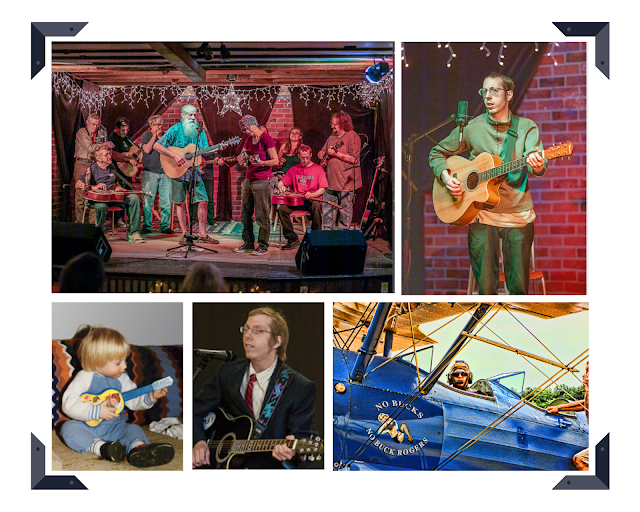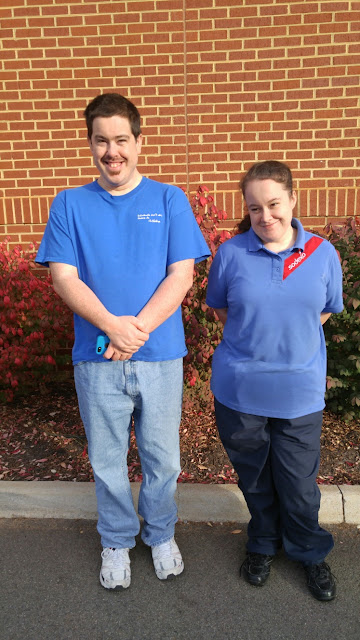Finding the Perfect Fit
We strive on a daily basis to find jobs that are a perfect fit for our clients. We search for jobs requiring skills that play to their strengths. Many of our client’s talents and abilities are overlooked in the midst of their disability. Often times people with disabilities don’t get hired because they don’t interview well despite their qualifications for the job which can range from organization and repetitive tasks to calculation to working with animals.
This article by Josh Teigen is about one particular job niche, a tech start-up, that plays to the strengths of individuals on the autism spectrum. It reinforces The Choice Group’s beliefs that finding the right job can help individuals reach their full potential and help them lead more fulfilled lives through employment.
Why Every Tech Startup Could Use Someone With Autism
The startup tech world is booming. A steady stream of technological developments that make our lives, businesses and world better have catapulted developers into an occupation of choice for those looking to ride this wave. Tech entrepreneurs are today's rock stars, and there couldn't be a sexier job than being at the helm of a cutting-edge company.
Behind the curtain of these iconic tech companies and their extroverted leaders is a diligently working, silent force that is crucial to the success or failure of the organization, and that is a specialized group of software testers working with precision in a field of zero recognition. And many of them are on the autism spectrum.
After working in the trenches of emerging technology companies, I noticed the need for high-quality software testers. No one seemed to want this thankless work, and the turnover rate was high. So when a business partner introduced me to a Danish company called Specialisterne -- which assess, trains, hires and places high-functioning individuals on the autism spectrum in detailed roles within companies -- I saw the potential. My business partners and I explored how to start a Specialisterne-type company in the U.S. to address this challenge, and in the process I learned just how much value those on the autism spectrum can provide a company.
A Complex Disorder
When you hear the word "autism," your mind may instantly go to the lowest-functioning person on the spectrum you've met. The fact is, however, that there are many people with autism who hold advanced college degrees in physics, math, music, engineering, chemistry and more. These people are brilliant and diligent workers, yet they often remain unemployed because they don't interview well.
When you hear the word "autism," your mind may instantly go to the lowest-functioning person on the spectrum you've met. The fact is, however, that there are many people with autism who hold advanced college degrees in physics, math, music, engineering, chemistry and more. These people are brilliant and diligent workers, yet they often remain unemployed because they don't interview well.
I personally met with a young man in New York City who graduated magna cum laude from Tufts University with degrees in both chemical and biomedical engineering. He then achieved his degree in medicine from Rosalind Franklin University in Chicago. He has a photographic memory, but is currently unemployed. Clearly this isn't because he's incapable of doing the work; rather, the issue lies in the fact that he doesn't interview well. This candidate has immense potential, but he has simply never been granted an opportunity because of his quirky nature.
Autism affects one in 68 people, or around 4.5 million people in the United States alone, and unemployment for people on the spectrum ranges from 80-90 percent. In technology, however, we have unemployment rates at less than three percent. What's more, people on the spectrum cost the system on average about $2 million over their lifetime, and some of those currently costing the system money are capable of working at an extremely high level. By employing them and utilizing their in-demand skill set, we can ease the burden on the system while also providing a needed labor force.
A Specialized Labor Force
There are a few businesses that have identified the unique skill sets of many on the autism spectrum and have harnessed their abilities. While it's no secret in Silicon Valley that developers and testers can have socially quirky tendencies, these companies have adopted and embraced them for their extreme skill and focus. In a conversation with a top software executive (who was at Microsoft at the time) when describing some of those on the autism spectrum and their skills, she laughed and said that I'd just explained 80 percent of the Microsoft development and testing team.
There are a few businesses that have identified the unique skill sets of many on the autism spectrum and have harnessed their abilities. While it's no secret in Silicon Valley that developers and testers can have socially quirky tendencies, these companies have adopted and embraced them for their extreme skill and focus. In a conversation with a top software executive (who was at Microsoft at the time) when describing some of those on the autism spectrum and their skills, she laughed and said that I'd just explained 80 percent of the Microsoft development and testing team.
The truth is, software developers do not make good software testers. In fact, when a developer builds something, it's very difficult for them to look at it objectively. Additionally, software testing is extremely detailed and repetitive work. This can become monotonous, which is what makes turnover in this field is so high. Autistic individuals' brains seem to be wired differently: what they lack in social ability they make up for in the ability to focus on very detailed tasks for long periods of time without diminishing quality. What most people find to be boring and monotonous, people with ASD may find soothing, making them an incredibly valuable, yet untapped, workforce.
An Untapped Market
As I mentioned earlier, Specialisterne has identified these savant-level skills and has been able to build a sustainable organization from assessing, training, hiring and placing those with these skills in jobs using a staffing agency model. Taking their cue, my business partners and I were able to build a similar company in the U.S. using their training model and brand, but adapted to function in the more capitalistic U.S. (on which I remain a member of the Board of Directors).
This system has also worked well in places like Fargo, North Dakota, which has quickly emerged as the Silicon Prairie because of its tech success. This is an area that does well by employing technically-minded individuals on the autism spectrum in high-demand dev and tester rolls, even if hiring them initially poses a "company fit" risk.
Flagship organizations from a variety of industries outside of technology have embraced this model as well: banks, public accounting firms, engineering firms, biotechnology organizations, e-commerce and agriculture have all taken this leap of faith in their candidate selection decisions. From each of them, I've heard the same response once they've worked with teammates on the autism spectrum: they don't hire for any charitable reasons, but do so because it's a good business decision.
There are potentially people in your organization already who are high functioning, undiagnosed on the Autism spectrum -- it's not uncommon for technology companies. When looking at how you can hire this sort of person to be part of your competitive advantage, the valuable skills to look for are their ability to do high quality, detail oriented work for long periods of time; their ability to process large amounts of information effectively and accurately; and many of them have photographic memories.
Those on the autism spectrum have the potential to contribute to our currently specialized, technical workforce, and social abilities shouldn't keep them from filling these vital roles.
For the full article on The Blog, click here.





Comments
Post a Comment